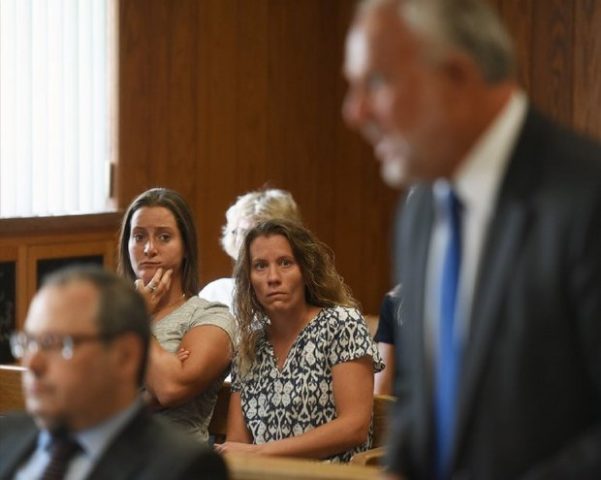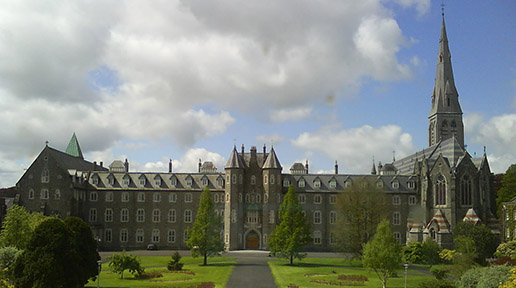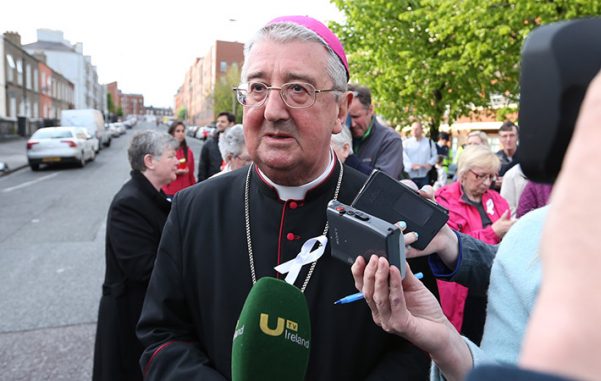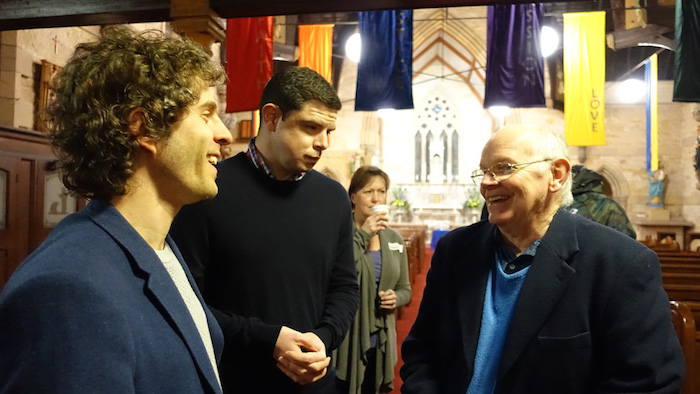By Tim Gihring
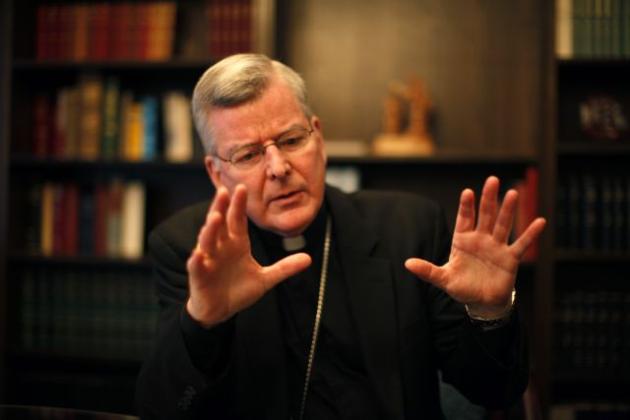
When allegations of a sex-abuse coverup began to leak out of the Archdiocese of St. Paul and Minneapolis a couple years ago, they were always accompanied by another, seemingly unrelated set of accusations: the bumbling attempts of Archbishop John Nienstedt, then the leader of the archdiocese, to have sex with men.
“The archbishop has been known to go ‘cruising’ (and I am not referring to the type of cruising one does on a ship in the Caribbean) and, on one occasion, purchased ‘poppers’ (and not the exploding candy preferred by elementary school students) and followed another gentleman to his car for, well, the type of activity that men purchase ‘poppers’ for…,” wrote Jennifer Haselberger, the whistleblower whose allegations prompted Nienstedt’s resignation last summer. On her website, Haselberger helpfully links to Wikipedia’s entry on poppers: basically disco-era sex drugs.
In late July, more stories of Nienstedt’s “promiscuous gay lifestyle,” as a fellow priest put it, were released by prosecutors. Most relate to his time in Detroit, where he moved up the clerical ladder in the late 1970s and ’80s. He’s said to have frequented a gay bar just across the border in Canada, whimsically called the Happy Tap.
But even if the allegations are true, it doesn’t mean that Nienstedt is sympathetic to sexual abuse — a link between homosexuality and priestly pederasty is as unproven as it is enduring. Nor does it mark Nienstedt as unusual. Catholic researchers estimate that as many as 58 percent of priests are homosexuals. To confirm that he desired men would be like discovering that the pope is Catholic.
But Nienstedt is not just any priest, of course. He staked his tenure in Minnesota fighting marriage equality — and using church money to do so. No other archbishop in the country has gone so far as to condemn the families and friends of gays and lesbians for abetting “a grave evil.”
Nienstedt, who now lives in California, writing and editing for a Catholic institute, has publicly denied that he is gay. He recently declared, as no straight guy ever has: “I am a heterosexual man who has been celibate my entire life.”
For gay Catholics, if Nienstedt does share their desires, the deceit would be heartbreaking, “a sickening level of hypocrisy,” as one described it. It may also help explain why Nienstedt not only neglected the sins of priests, but covered them up, a pattern of denial that would be hard to fathom if it were not so deeply personal.
A different era
When gay Catholics in the Twin Cities first came together, in the late 1970s, they asked to meet with then-Archbishop John Roach. They were looking for compassion and understanding, if not acceptance — and to a remarkable degree they got it.
With Roach’s blessing, the Catholic Pastoral Committee on Sexual Minorities (CPCSM) — an independent group of local Catholics based in St. Paul — introduced a sort of sensitivity training in parishes and in nine of the 11 local Catholic high schools. It was intended to help priests, teachers, and administrators better serve gays and lesbians, and it lasted for nearly 20 years.
“During the peak of our work,” one of the group’s co-founders told me several years ago, “we became almost mainstream.” In 1989, the archdiocese awarded its Archbishop John Ireland Award to another CPCSM co-founder for his social-justice activism on behalf of gays and lesbians.
The efforts paid off: “If it was okay to bash someone in the past, it isn’t now,” reported the director of Catholic Education and Formation Ministries in 1998. “We’re trying to teach kids what’s right.” When conservative activists objected that same year, the archdiocese defended the Safe Schools initiative.
Michael Bayly, a gay Catholic who until last year headed up the CPCSM, began compiling this history in 2009, shortly after Nienstedt became archbishop. He worried at the time that “there are some who would like to downplay or even deny such a relationship.”
But the church’s openness wasn’t limited to the Twin Cities. Bayly recalls that in 1994, when he moved to Minnesota, a bishop from Detroit came to talk with gay and lesbian Catholics on how — to quote the advertisement for the dialogue — a “wholeness in sexual expression” can be “deeply human and truly spiritual.”
In fact, Detroit was known as one of the most open-minded districts of the church. And as Nienstedt was starting out there, he was imbued with its liberal spirit.
Promoted and protected
In 1977, as the era of disco and poppers was in full swing, Nienstedt was 30, a newly minted priest in Detroit, and he became the secretary to Cardinal John Dearden, characterized by the New York Times as a “leading liberal voice in the Church.” Nienstedt himself described his mentor’s views to the Times as aligned “with the mind of the Church.”
But something changed after Dearden’s retirement in 1980, when Nienstedt went to work and study in the Vatican, which was shifting toward the neo-conservatism of the new Pope John Paul II. As a leading critic of Nienstedt has noted, the ambitious young priest saw first-hand “the changes John Paul II sought in the church and the kind of bishops whom he wanted.” When he returned to Detroit in 1985, Nienstedt’s new boss was a favorite of the pope, and, sure enough, in time Nienstedt adopted his views.
For pushing back on gays in the church, among other issues, Nienstedt would be promoted and promoted and promoted again. He would also be protected: Among the revelations in the documents unsealed last month is that the Vatican envoy to the United States quashed an investigation into Nienstedt’s homosexual activity and ordered evidence destroyed.
The evidence that exists, in the form of corroborated witness accounts, suggests that Nienstedt spent his time in Minnesota, from 2001 to 2015, living a precarious double life: indulging his homosexual tendencies, even as he railed against them.
Haselberger, who worked closely with Nienstedt in the archdiocese office as an adviser on church law, believes his proclivities help explain why he coddled abusive priests — he may have been attracted to them. And the so-called Delegate for Safe Environment, a priest overseeing child-abuse prevention in the archdiocese, came to the same conclusion about Nienstedt two years ago: being gay “affected his judgment.”
But Nienstedt’s silence protected far more priests than he could have known or been attracted to — dozens across Minnesota. And aside from suspicions of a relationship with one of the most notorious, Curtis Wehmeyer, his intervention — or lack of it — appears less about personal favor and more about institutional preservation. He saw sin, and looked the other way.
Instead, the deal that Nienstedt long ago made for the benefit of his career — to follow the church into conservatism — now seems a kind of ecclesiastical quid pro quo: if he covered for the sins of the church, the church would cover for his. The internal investigation of him, reportedly quashed by the Vatican, had been his idea — he was that confident that his name would be cleared.
But the deal may also have been a trap. By closing the door to homosexuality, marking its expression as the work of Satan and the most aberrant of sins, Nienstedt had nowhere to go with his own desires. He left himself no way out.
At the end, as multiple investigations closed in, Nienstedt still stuck to the pattern, claiming both that he was unaware of abusers under his watch and that any accusations of homosexuality were merely retaliation for his anti-gay policies. He had no choice but to double down on denial.
Complete Article HERE!
